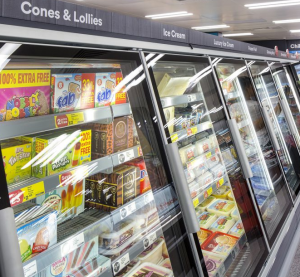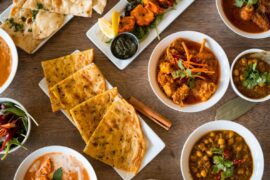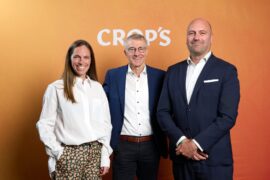The latest grocery market share figures from Kantar show take-home grocery sales in Britain rose by 10.8% during the 12-week period through September 6, 2020. While it marks the sector’s fifth consecutive period of double-digit growth, sales slowed in August as some aspects of life before the novel coronavirus pandemic (SARS-CoV-2) resumed.
“In the most recent four weeks year-on-year sales growth decelerated to 8%, the slowest rate since April 2020,” reported Fraser McKevitt, head of retail and consumer insight at Kantar’s Worldpanel Division in the UK. “Grocery growth tailed off in August as the government’s ‘Eat Out to Help Out’ scheme got under way and people were encouraged to return to offices and resume normal routines. Diners’ confidence built throughout the month and footfall increased during each week of the scheme, culminating in the final bank holiday Monday when dining out accounted for two and a half times greater share of consumer spend than the pre-Covid average.”

Fewer meals consumed at home meant shoppers spent £155 million less in the supermarkets in the four weeks to September 6 compared with July. Alcohol sales dipped month on month, with wine down 5% and beer down 10%, as the scheme encouraged people to swap Zoom catch-ups in favor of rendezvousing at their favorite bars and restaurants.
“Online grocery sales rose by 77% year-on-year in the past four weeks, bringing the cumulative increase in orders to £3.2 billion since lockdown began,” said McKevitt. “While online grocery growth is still impressive, it has slowed for the second month in a row and dropped back to 12.5% of total sales this month from a peak of 13.5%. This is not just about people going out to eat in restaurants, August also brought shielding to an end for many vulnerable and at-risk people.”
Ocado, which launched its partnership with Marks & Spencer’s to shoppers on September 1, was the fastest growing retailer over the past 12 weeks, with year-on-year sales rising by 41.2%. Its former partner, Waitrose, increased overall turnover by 7.3% compared with last year, and Waitrose.com generated the fastest year-on-year online platform growth of any retailer.
Frozen Food Demand Continues to Boost Iceland Sales
The Iceland chain continues to benefit from the performance of frozen food this year and grew sales by 20.8% during the 12 weeks, achieving a 2.4% market share, up from 2.2% in 2019. Aldi boosted sales by 10%, with its market share slightly down on last year to 8%.

“Sales at Co-op rose by 13.4%, but increased by more than double this rate in the North of England, where local lockdowns mean consumers are continuing to shop closer to home,” said McKevitt. “Meanwhile, symbols and independent retailers saw sales rise by 31%. While shopper numbers are down by 2.3 million from the May-lockdown peak, those customers still visiting spent £131 on average over the 12 weeks, £24 more than the same time last year.
Morrisons sales rose by 12.9%, with market share up by 0.2 percentage points to 10.1%. Sainsbury’s and Asda’s sales increased by 8.0% and 6.3% respectively.”
![]()





